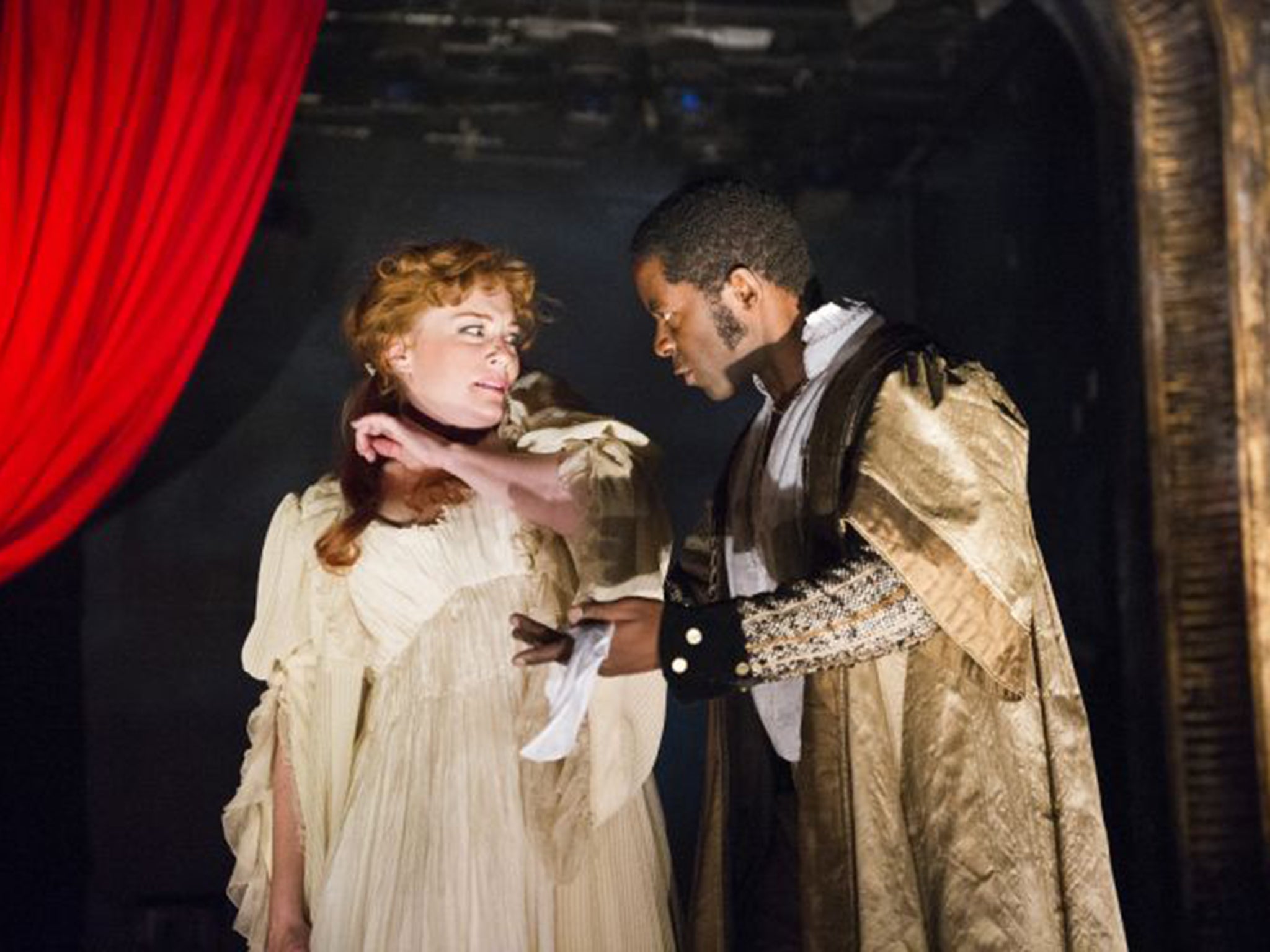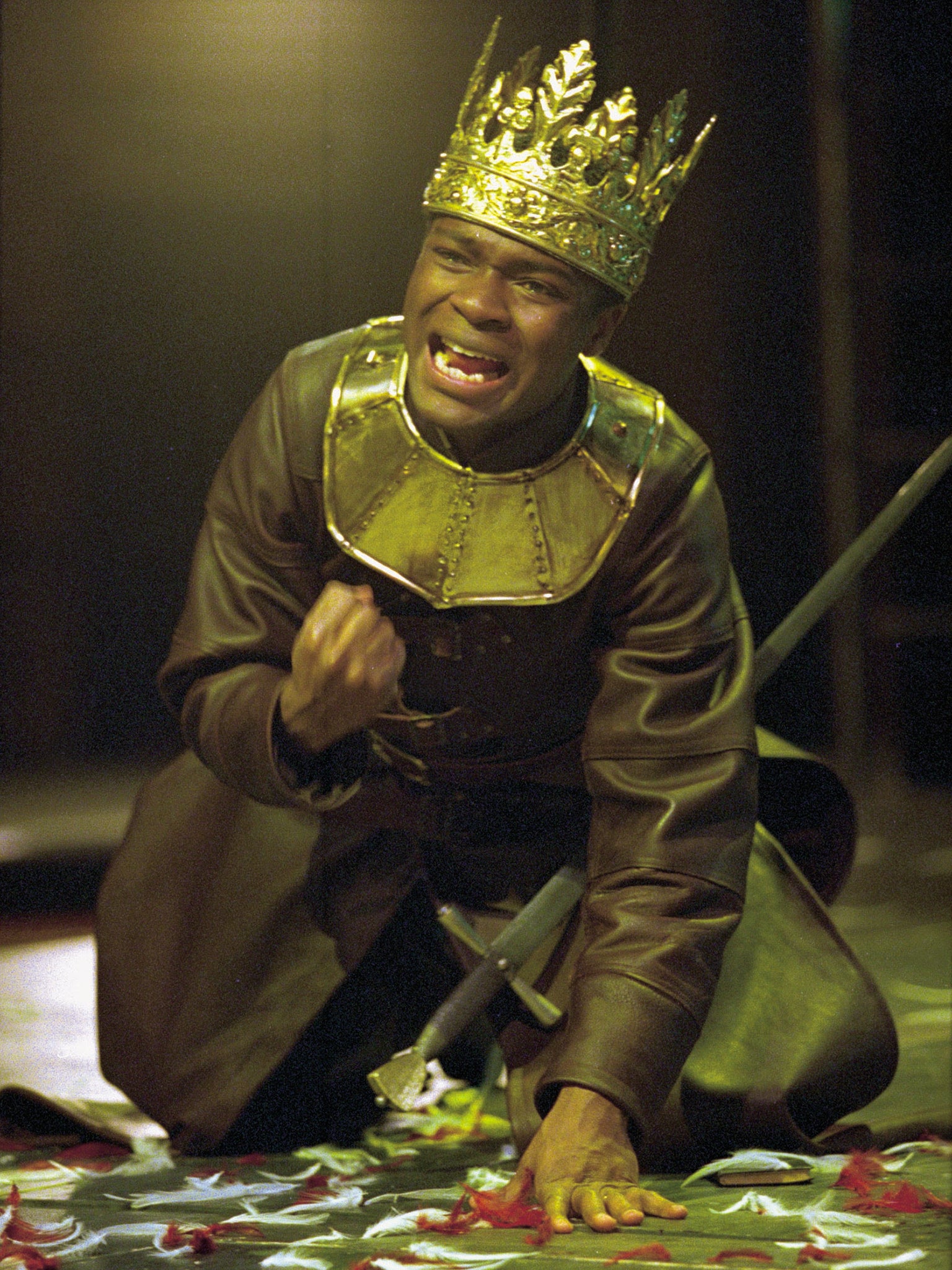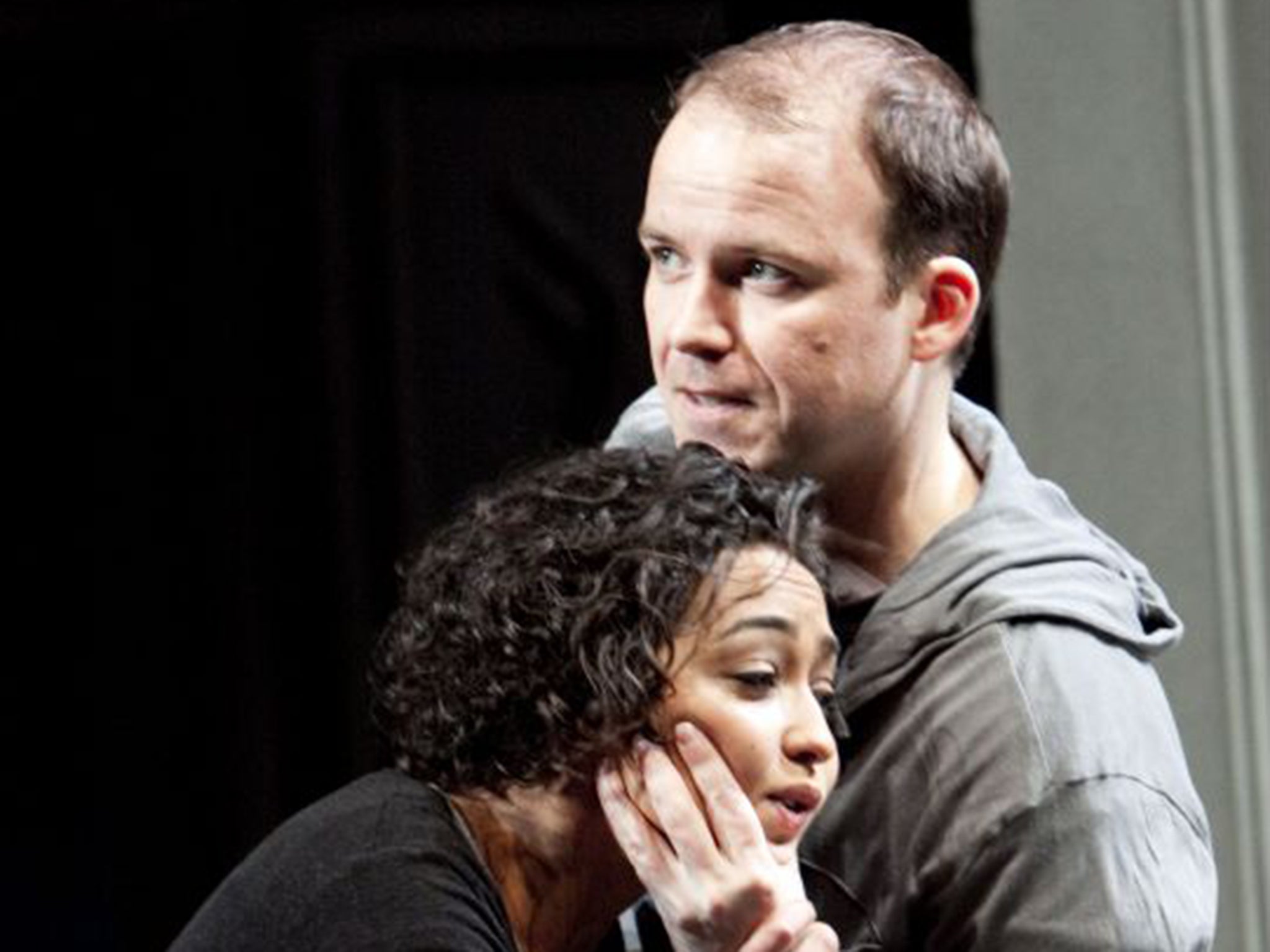Shakespearean black and ethnic minority actors 'still only getting minor roles'
'I genuinely think that British classical theatre is recognising there is an issue with diversity'

Your support helps us to tell the story
From reproductive rights to climate change to Big Tech, The Independent is on the ground when the story is developing. Whether it's investigating the financials of Elon Musk's pro-Trump PAC or producing our latest documentary, 'The A Word', which shines a light on the American women fighting for reproductive rights, we know how important it is to parse out the facts from the messaging.
At such a critical moment in US history, we need reporters on the ground. Your donation allows us to keep sending journalists to speak to both sides of the story.
The Independent is trusted by Americans across the entire political spectrum. And unlike many other quality news outlets, we choose not to lock Americans out of our reporting and analysis with paywalls. We believe quality journalism should be available to everyone, paid for by those who can afford it.
Your support makes all the difference.Black, Asian and minority ethnic (BAME) actors are still being relegated to the back of the stage in productions of Shakespeare, according to “shocking” statistics in a database launched by the University of Warwick last week.
The British Black and Asian Shakespeare Performance Database – using information from almost 1,200 productions over the past 75 years – reveals that while the Bard’s plays have become more multicultural over the decades, BAME actors have had scant opportunities to play the great Shakespearean leads. Given the huge multi-ethnic pool of talent to choose from, the statistics make for embarrassing reading.
Richard II has still never been played by a black or minority ethnic performer and the last time Bolingbroke was cast with an ethnic minority actor was in 1935 at the Old Vic by the Burmese-Jewish actor Abraham Sofaer, the same year he played Henry IV.
David Lee-Jones, a mixed race (Chinese-Caucasian) graduate from the University of York in 2000 and from the Academy Drama School in 2005, is the only BAME actor to have played Richard III – in a 2012 production by the Festival Players Theatre Company.

Adrian Lester played Henry V in a memorable performance at the National Theatre in 2003 but, other than Oliver Wilson in a “Pocket Henry V” touring show for schools two years ago, not a single non-white actor has followed him.
David Oyelowo became the first BAME actor to play Henry VI, in all three parts, in 2000 at the Royal Shakespeare Company. Chuk Iwuji and Paul Adeyefa have followed in the role.
Hamlet fares slightly better. Lester is one of six BAME actors to have starred in that role, while 13 actors have played Macbeth, including Lennie James and Jeffery Kissoon – although BAME actors have been cast most often in Macbeth as one of the three witches.
The database was launched at a special event at the Tricycle Theatre in London on 15 January. In Robeson’s Footsteps: British Black and Asian Shakespeare Now, references the American actor and singer Paul Robeson who, in March 1930, became the first black actor cast as Othello in a British production since Ira Aldridge 100 years before.
BAME actors have been cast more often as the largely silent Hippolyta in A Midsummer Night’s Dream than any other role in that play. Similarly, they are more likely to play Laertes, Ophelia, Horatio, Guildenstern or Rosencrantz than the title role in Hamlet.

The actor Paterson Joseph, who has played Brutus and Othello, describes how black and Asian performers have been marginalised. “I would have thought that perhaps after the 1980s it would have changed, but it doesn’t seem to have done in any major way. So that is shocking,” he told The Stage. “We’ve talked about it, but seeing it in that official way is a reassurance that we’re not imagining our ghettoisation into the more minor roles.”
Last year a furious row broke out after the celebrated director Sir Trevor Nunn chose an all-white, 22-strong cast for his Shakespearean production The Wars of the Roses, the distillation of four history plays.
He told the IoS at the time that he would normally “cast, whenever possible, according to the principle of diversity”, but in this case of The War of The Roses he had made an “artistic decision” to cast according to “historical verisimilitude”.
Two black actors will take centre stage this year, the 400th anniversary of the Bard’s death. Paapa Essiedu plays Hamlet for the RSC next month, while Don Warrington is to play King Lear at the Royal Exchange in April.
However, BAME actors in Shakespearean roles are actually on a downward trend at the moment, having peaked in 2012 with 182 roles. In 2014 the figure was only 163.
Dr Jami Rogers, lead researcher on the Multicultural Shakespeare project, told the IoS: “There is clearly a problem with the casting patterns that have developed in Shakespearean production over the past 20 years.” However, she said, “I genuinely think that British classical theatre is recognising there is an issue with diversity. People are willing to listen, which is the first step to changing what has become the status quo for a lot of black, south Asian and east Asian performers.”
Subscribe to Independent Premium to bookmark this article
Want to bookmark your favourite articles and stories to read or reference later? Start your Independent Premium subscription today.
Join our commenting forum
Join thought-provoking conversations, follow other Independent readers and see their replies
Comments